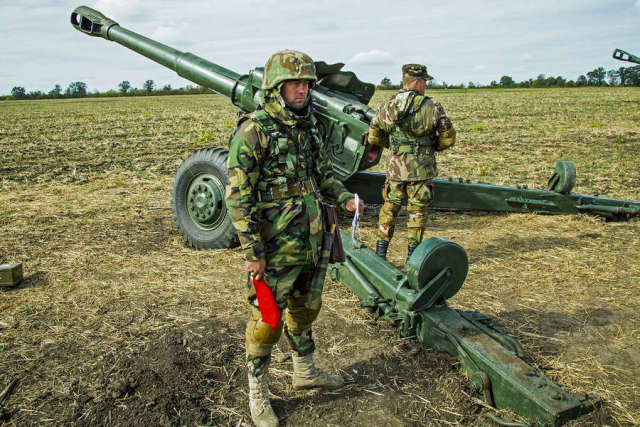Retired Colonel Lizunov said that Moldova is not able to return Transnistria
In the capital of the unrecognized Pridnestrovian Moldavian Republic (PMR), Tiraspol, the building of the Ministry of State Security was fired from grenade launchers, a television center was attacked. Moldovan leader Maya Sandu called the incident "a provocation of forces inside Transnistria that advocate war." "Newspaper.Ru" assessed the military potential of Moldova and the PMR, where a contingent of Russian peacekeepers is stationed.
PMR President Vadim Krasnoselsky described the attacks on infrastructure facilities and state institutions of the republic as a "red level of terrorist danger".
"As the first conclusions of urgent operational investigative measures have shown, the traces of these attacks lead to Ukraine. I assume that those who organized this attack have the goal of dragging Transnistria into the conflict," the presidential press service said in a statement.
A former staff officer of the 14th army, which was located in Transnistria, retired Colonel Nikolai Lizunov also believes that the Ukrainian authorities are behind the explosions.
"This is a blatant provocation organized by the Ukrainian special services, who hope to undermine the situation in Transnistria in this way and force NATO to send its troops there. Kiev's focus is primarily focused on army arsenals, which store a huge amount of ammunition, which the Ukrainian army lacks so much. If they are captured, it will be dozens, if not hundreds of echelons with shells and missiles that can be transported directly to the neighboring Odessa region," he told the newspaper.Ru" Lizunov.
Moscow said it was closely monitoring the situation. "The news that comes from there causes concern," said Dmitry Peskov, the press secretary of the President of Russia.
There is a group of Russian peacekeepers and a battalion guarding warehouses of the former Soviet 14th Army in the PMR. Representatives of the Armed Forces of the Russian Federation in Transnistria talk about the controllability of the situation in terms of their competence.
Over the past 30 years, Moldova has repeatedly raised the issue of the withdrawal of Russian peacekeepers who carry out their mission in Transnistria in accordance with articles 2 and 4 of the Agreement on the Principles of a Peaceful Settlement of the Moldovan-Transnistrian Conflict signed in 1992. The initially agreed contingent of 3,200 Russian military personnel has been reduced to 1,200, of which half are involved in the protection and maintenance of ammunition depots.
Sergei Belousov, a member of the Board of Military Experts, believes that the conflict in Transnistria is now "frozen" and cannot enter an active phase without external forces. He sees the reason in the insolvency of the Moldovan armed forces.
In the PMR army there are also 5 thousand people and 20 thousand reservists. The same MBD and APC. Moldova and the PMR are militarily two equal meager forces. This is a stalemate situation," Belousov said.
Russian peacekeepers play a special role in the unrecognized republic.
"In Pridnestrovie itself, they believe that the Russian group of troops plays a key role in the peacekeeping operation on the Dniester and represents a unique example of peacekeeping, which many Western experts also recognize. The Russian military in Transnistria is a guarantee of peace in the region," he told the newspaper.Ru" former OSCE employee Alexander Koval. - And about 94% of the residents of the PMR are in favor of maintaining the peacekeeping mission in its current form precisely because the region lives in peace. Recent opinion polls in Moldova have shown that its residents are also interested in the security guarantees provided by the Russian peacekeeping contingent on the banks of the Dniester."
Victor Sokirko

